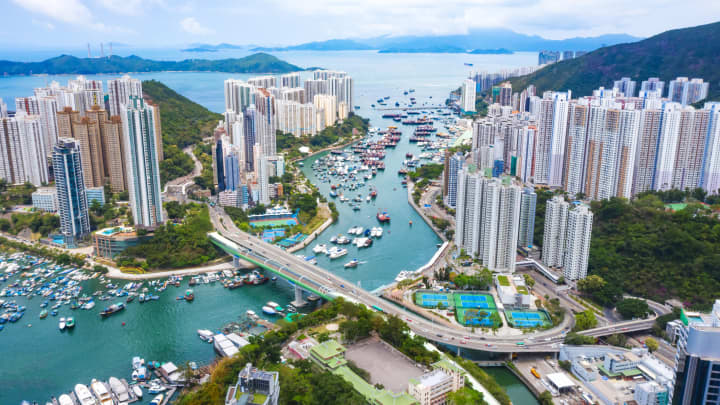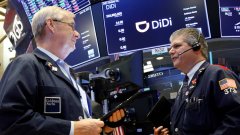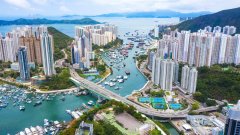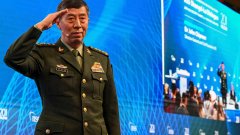
Hong Kong's Chief Executive John Lee is set to address some major economic and social issues that the city faces in his second annual policy speech on Wednesday.
Residents of the financial hub are currently grappling with a slowing economy, high real estate prices and falling birth rates.
Here's what to expect:
Hong Kong is notorious for its high property prices — but just this year, it of being the "most expensive private property market" in Asia to Singapore.
Home prices fell four months in a row. The latest government data showed that stood at 339.2 in August, down 4.2% since year-highs in April and dropped 7.9% year-on-year.
As interest rates remain high and analysts expect further downside in housing prices, calls are growing for the government to lift the current property cooling measures — also known as the "spicy policies."
These measures are essentially different forms of such as Buyer's Stamp Duty (BSD), Ad Valorem Stamp Duty (AVD), and the Special Stamp Duty (SSD). They were first introduced in 2010 when the market was heating up amid speculation on residential properties that drove up prices.
"Market is speculating the government may relax the BSD and the revised AVD during the upcoming policy address," said CBRE Hong Kong's Eddie Kwok in a report, while expecting the SSD to remain in place.
Kwok said relaxing these measures could help boosting transaction volumes, but residential "may not change much."
Hong Kong's economy is also facing some headwinds.
"Hong Kong has been facing a challenging external environment with the world economy slowing amid high interest rates," Thomas Shik, chief economist from Hang Seng Bank told CNBC.
The financial hub briefly dipped into a technical recession in 2022 while the pandemic restrictions were still in effect.
The city only early this year, being one of the last economies to resume businesses to pre-Covid level.
Economic activity has started seeing some rebound. in the first quarter recorded expansion of 2.9% and 1.5% growth in the second quarter.
While Lee's administration has revised up its to between 4% and 5%, previously, Shik kept his projection at 4% for this year.
He expects domestic demand will continue to be the key driver to Hong Kong's expansion.
"The government is widely expected to step up efforts to promote consumer spending and tourism," the chief economist said, adding those proposals may include promoting a night market, organizing international seminars, implementing infrastructure projects and so on.
According to PwC, Hong Kong's overall vacancies in the private sector has risen by 6.3% since December of 2022, despite measures announced in last year's policy address to attract and retain talent — both foreign or domestic – in the city.
The consultancy firm said in a recent report that this is the result of a surge in emigration, as well as global competitions for talents, low birth rates and a shift in demographic.
In fact, Hong Kong has the lowest fertility rate in the world, data in 2021, with 0.8 births per woman. That's compared to 1.1 in Singapore and 1.7 in the U.S.
To tackle the problem, the Hong Kong leader may consider giving 20,000 Hong Kong dollars ($2,556) to the family of every newborn baby in the territory, if at least one of the parents is a permanent resident.
PwC also recommended the government should provide support to full-time parents so they can return to the work force.
"By offering attractive incentives such as tax benefits, industry-specific subsidies, training and upskilling, education support, Hong Kong can re-establish itself as an attractive destination for both local and international talent," said PwC Hong Kong's private client services partner Wise Lam, in a .




